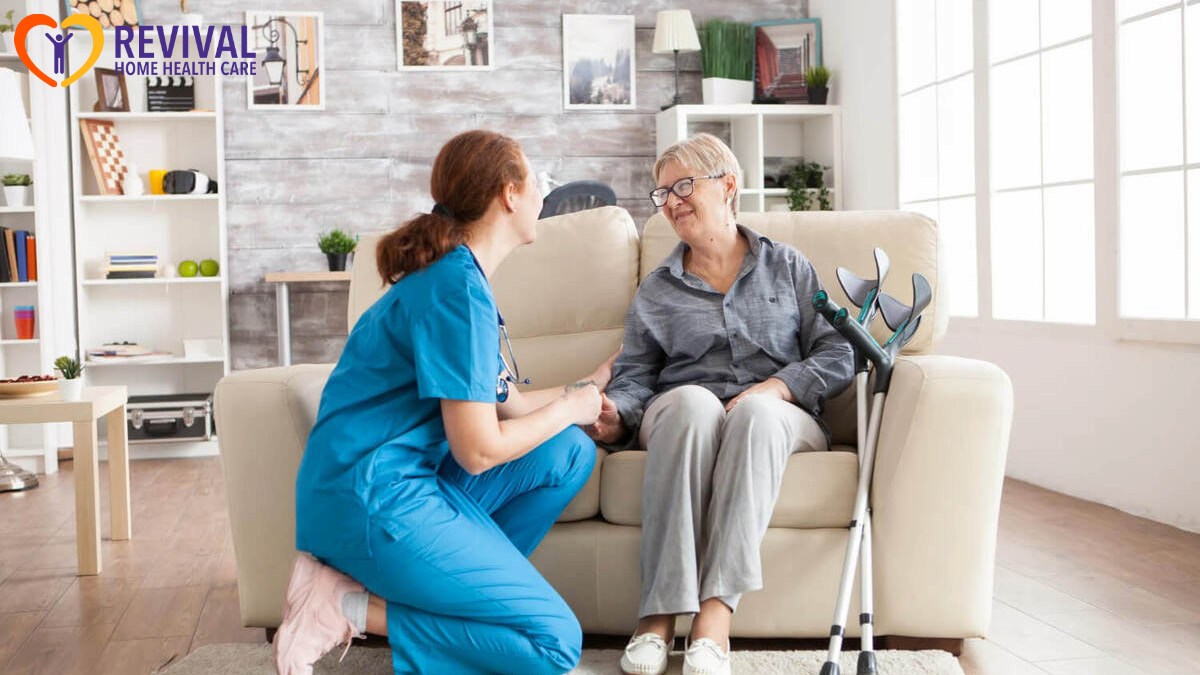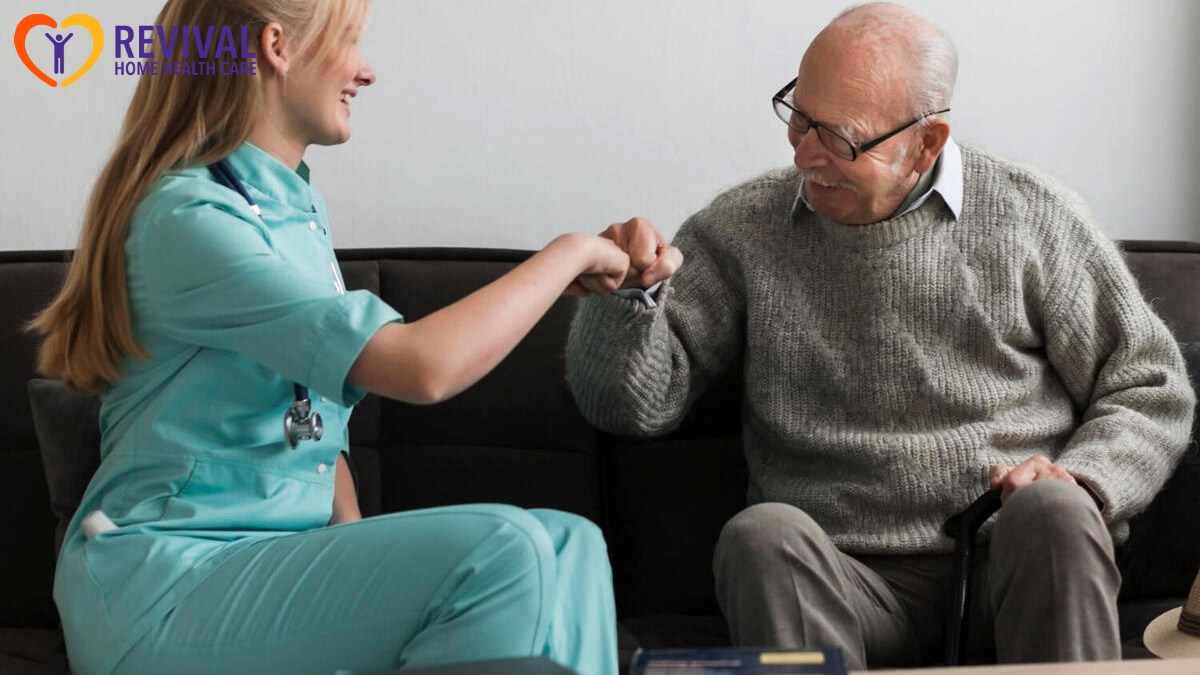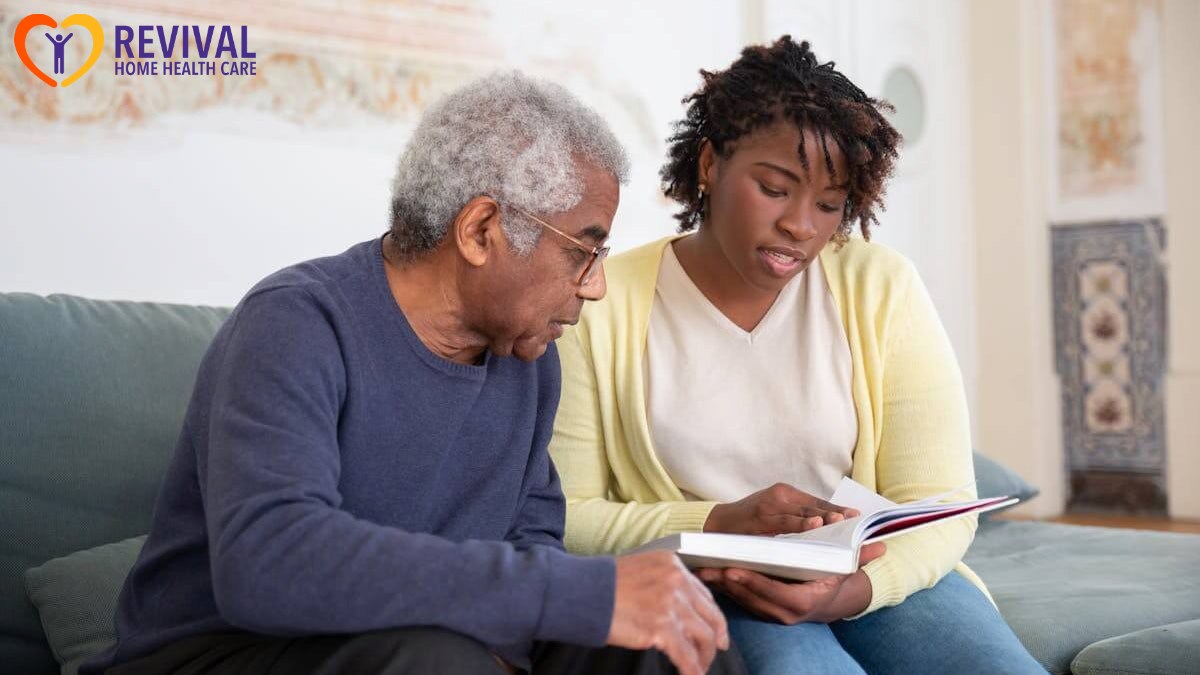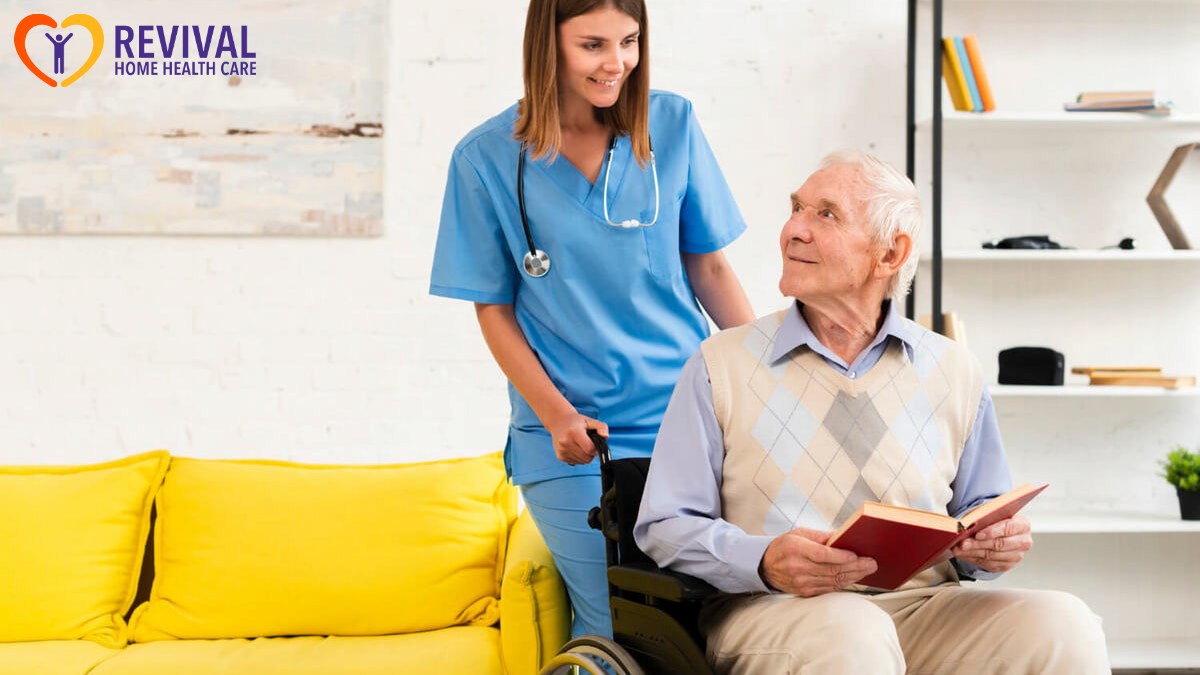Key points:
- Small home tweaks can cut fall risk and preserve independence.
- Medication routines, meal changes, and hydration prevent complications, hospital returns.
- Companion care, tailored activity, and gentle exercise improve mood and function.
Home health aides make daily living smoother in ways families often overlook. From preparing balanced meals to assisting with grooming or light exercise, small gestures restore comfort and confidence. Adjusting room layouts, offering companionship, or simply maintaining routine can greatly reduce stress for both patient and family. These subtle touches build independence without removing dignity.
Many older adults resist outside help, but home aides often become trusted partners in well-being. With consistency and compassion, they turn small moments, mealtime, walking, conversation, into meaningful progress. This guide shows how everyday support can make life at home feel easier, safer, and more fulfilling.

Make the home safer, start with the small fixes
Many older adults fall at home, and falls are the leading cause of injury for people 65 and older. Small environmental fixes address the most common hazards. A focused room-by-room approach, completed by an aide or during a safety visit, yields quick wins and measurable risk reduction.
What aides do, practically:
- Install or recommend grab bars near toilets and in showers, check that handrails are secure.
- Replace or secure loose rugs, coil or tape cords along walls, and clear walkways of clutter.
- Improve lighting, add night lights on common paths, and position frequently used items within easy reach.
Why it helps: these changes cut trip hazards, reduce the need for risky bending or reaching, and increase confidence moving around the house. Systematic reviews show that targeted home modifications improve functional performance and can reduce moves to more intensive care.
Practical tips for aides:
- Use a simple checklist (entryway, kitchen, bathroom, bedroom, stairs) and document fixes.
- Teach one predictable path for nighttime needs and keep a small flashlight at bedside.
- If mobility aids are used, keep them within reach and check that rubber tips and brakes function.
Tidy medication routines, fewer errors, fewer readmissions

Medication complexity is a top safety issue for older adults. Home aides who add small systems, such as daily pill organizers, reminder routines, or direct communication with clinicians about discrepancies, help prevent missed or duplicated doses. Studies show that medication reconciliation and education around discharge can reduce readmissions. For seniors managing multiple prescriptions, medication education programs provide essential guidance on proper dosing schedules and potential drug interactions.
Small but high-impact aide actions:
- Set up a weekly pill box and coach the senior to use it, or coordinate with pharmacies that provide blister packs.
- Document medications and communicate any changes to the supervising nurse or pharmacist.
- Use phone alarms, visual cues, or simple medication reminder devices when appropriate.
When to involve clinicians:
- If the aide notices confusion about pills, adverse effects, or signs like dizziness or excessive drowsiness, escalate to the nurse or prescriber. Regular medication reviews and pharmacist involvement further reduce errors.
Meal prep and hydration tweaks that boost energy and resilience
Many older adults are at risk of undernutrition, which increases hospital visits and weakens recovery from illness. Home aides who make small, consistent changes to meal patterns and hydration can reverse risk and improve quality of life. Community programs and nutrition interventions have been linked to better outcomes for at-risk seniors. Learn more about how meal preparation and nutrition support strategies that trained aides use to address dietary challenges in older adults.
Actions aides can take today:
- Prepare smaller, nutrient-dense meals and nutritious snacks, focusing on protein-rich options and easy-to-eat finger foods.
- Offer a full glass of water with each meal and set a hydration schedule to avoid dehydration.
- Fortify favorite foods when needed, for example add powdered milk or protein powder into soups, smoothies, or oatmeal.
Communication and coordination:
- Track weight trends and appetite changes, and share concerns with clinicians or dietitians.
- Link seniors to local meal delivery services or community nutrition programs when grocery shopping or cooking is a challenge.
Short daily exercises that protect balance and independence

Gentle, regular movement preserves strength and balance. Home-based strength and balance programs, including tai chi and targeted resistance exercises, reduce fall rates and improve gait and confidence. Training can be guided by therapists or implemented by aides who follow a therapist’s plan. Getting professional physical therapy at home provides personalized exercise prescriptions designed to enhance mobility and prevent falls.
How aides can help safely
- Lead short chair-based strength sets, ankle and hip mobility, and sit-to-stand repetitions.
- Encourage 10 to 20 minutes of walking or balance practice, scheduled at the same time each day.
- Follow a physical therapist’s exercise prescription, and report pain, dizziness, or worsening function.
- Assess baseline mobility before starting new exercises, use walking aids where prescribed, and stop any activity that causes dizziness, chest pain, or severe breathlessness. Discover more about building strength and balance through home-based therapy for safe, effective exercise routines tailored to seniors.
Home-based exercise programs have proven benefits when they match ability and are regularly reinforced.
Small social and emotional habits that fight loneliness
Social isolation and loneliness are linked to worse health outcomes and even higher mortality. Home aides who bring companionship, daily conversation, and meaningful activities can improve mood and reduce the risk of depression and decline. Regular, predictable social contact is one of the most powerful low-cost interventions. Understanding how home health aides support independent living through emotional connection and daily engagement reveals the profound impact of consistent human interaction.
Everyday companion strategies:
- Share a drink and a short conversation, read mail or a book together, or play a simple game.
- Use intergenerational activities when possible, such as video calls with younger family members or local school pen-pal programs.
- Schedule short outings or walks, and partner with community programs to increase social exposure.
Designing meaningful interactions:
- Ask about lifelong hobbies, favorite music, or memories and use that information to plan activities that connect to the person’s identity. Person-centered small actions boost engagement more than generic pastimes.
Assistive tech and low-tech monitoring for peace of mind
Smart home technologies and simple monitoring tools support independence and give families confidence. When matched to abilities, these tools make daily routines simpler without replacing human connection. Research indicates that appropriate smart home tech can improve life satisfaction and safety for older adults.
Practical tech aides can introduce:
- Simple medication dispensers and alerts, motion-sensor night lights on key paths, and automatic fall-detection pendants for those at higher risk.
- Voice-activated speakers for reminders, large-button phones, and photo-labeled drawers for easy identification.
- For higher-need seniors, coordinate remote monitoring or telehealth check-ins set up by clinicians.
- Prioritize ease of use and privacy; test devices together, and keep instructions visible in large print. Technology works best when it supports, rather than replaces, personal care.
Person-centered care, small adaptations with big payoff
Tailoring care to the person’s preferences and history reduces distress, especially for people living with dementia. Person-centered approaches, where aides learn and use personal preferences, routines, and triggers, reduce agitation and improve quality of life. Training and consistent application of these approaches show measurable improvements in behavior and well-being. Explore strategies for occupational therapy support for people with dementia to understand how personalized interventions address cognitive and functional challenges.
Person-centered aide practices:
- Use the person’s preferred name, favorite activities, and established routines to structure the day.
- Offer choices, for example between two meal options or two shirts, to preserve control and dignity.
- When anxiety or agitation appears, use distraction strategies rooted in the person’s past interests, such as music from their youth or a favorite hobby.
Practical documentation:
- Keep a short “preferences card” in the home with things like preferred wake-up time, activity tolerances, communication tips, and calming strategies. Share this with all caregivers.
Light housekeeping and access to essentials preserve dignity

Aides who do small, consistent housekeeping tasks create safer, calmer spaces and free seniors to spend energy on what matters. Tasks like laundry, changing bedding, and keeping toilets and sinks clean support hygiene and comfort, and reduce infection risk. Even minimal household support improves daily life and sense of worth.
Suggested aide priorities:
- Keep clear walking paths, remove trash promptly, and maintain clean, dry floors.
- Organize a simple system for clean clothing and toiletries, labeled and within reach.
- Rotate seasonal clothing and ensure weather-appropriate outerwear is ready for quick outings.
How to prioritize changes, make a simple plan
When resources are limited, a modest, staged approach works best. Start with safety and immediate health risks, then layer in wellbeing and social support. If you’re wondering about <a signs your loved one needs home health care, watch for declining mobility, difficulty with daily tasks, or increased isolation as key indicators.
A simple 3-step plan aides can follow
- Safety sweep: check lighting, rugs, grab bars, and clutter, fix top three hazards.
- Health routines: set up medication organizers, hydration cues, and a simple meal schedule.
- Wellbeing additions: add 10 minutes of exercise, a daily social check-in, and introduce one helpful tech tool.
Document progress and share it with nurses and family, so small gains are recognized and reinforced. Short, repeatable improvements are easier to sustain than dramatic changes.
Measuring success, small signals that show impact
Look for simple indicators that show quality of life is improving:
- Fewer near-falls or unsteady incidents, less worry about moving around.
- More consistent medication adherence and fewer missed doses.
- Improved appetite, a stable weight trend, and brighter mood during visits.
- Greater willingness to move and take part in activities.
Track these signals in a short log and review weekly with the care team to adjust plans. For specialized recovery needs, skilled nursing care provides clinical oversight and medical management alongside aide services.
FAQs
How soon can small home changes reduce fall risk?
Many environmental fixes, like securing rugs and adding grab bars, lower immediate trip hazards. Functional improvements continue as routines and exercises are reinforced over weeks.
Are aides allowed to help with medications?
Home aides can remind, organize, and observe medication use, but only nurses or pharmacists can adjust prescriptions. Clear communication and documentation are essential for safety.
What’s the easiest way to start improving nutrition at home?
Begin with small, protein-rich snacks, regular hydration, and prepped mini-meals. Connect with local meal delivery or nutrition programs for ongoing support.
Discover The Difference A Dedicated Home Health Aide Makes
Daily life improves with reliable, compassionate care. Revival Home Health Care provides trained home health aides who focus on comfort, safety, and dignity.
Whether it’s help with personal care, meal preparation, or mobility support, our aides build trust and promote independence. Families gain peace of mind knowing their loved ones are cared for with respect and empathy.
Contact us today to arrange personalized home aide services that make everyday life more comfortable and connected.


 75 Vanderbilt Ave Staten Island, NY 10304
75 Vanderbilt Ave Staten Island, NY 10304 info@revivalhhc.org
info@revivalhhc.org 718.629.1000
718.629.1000